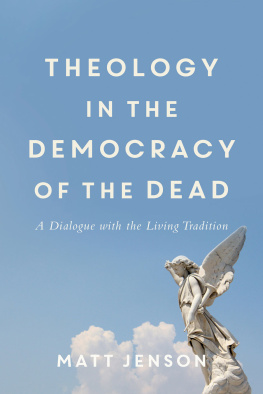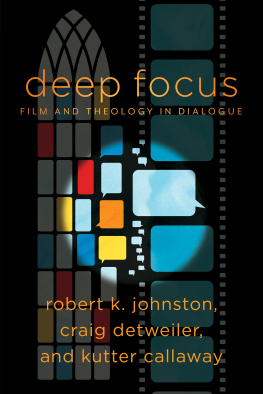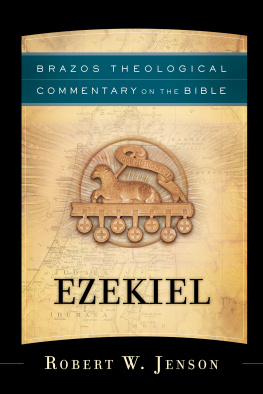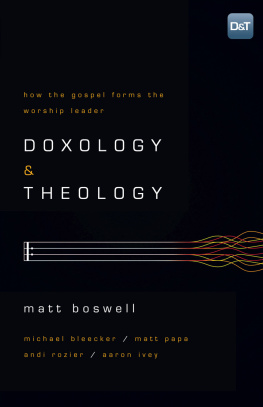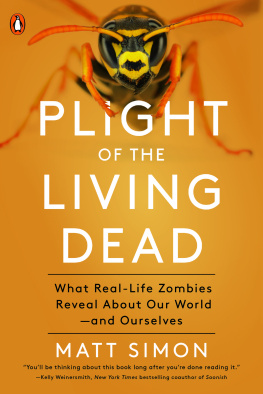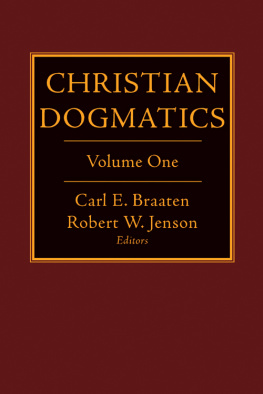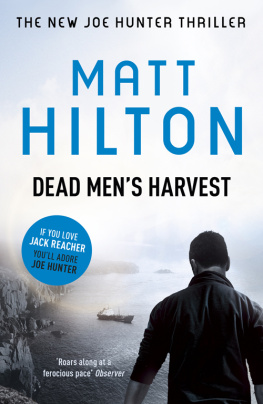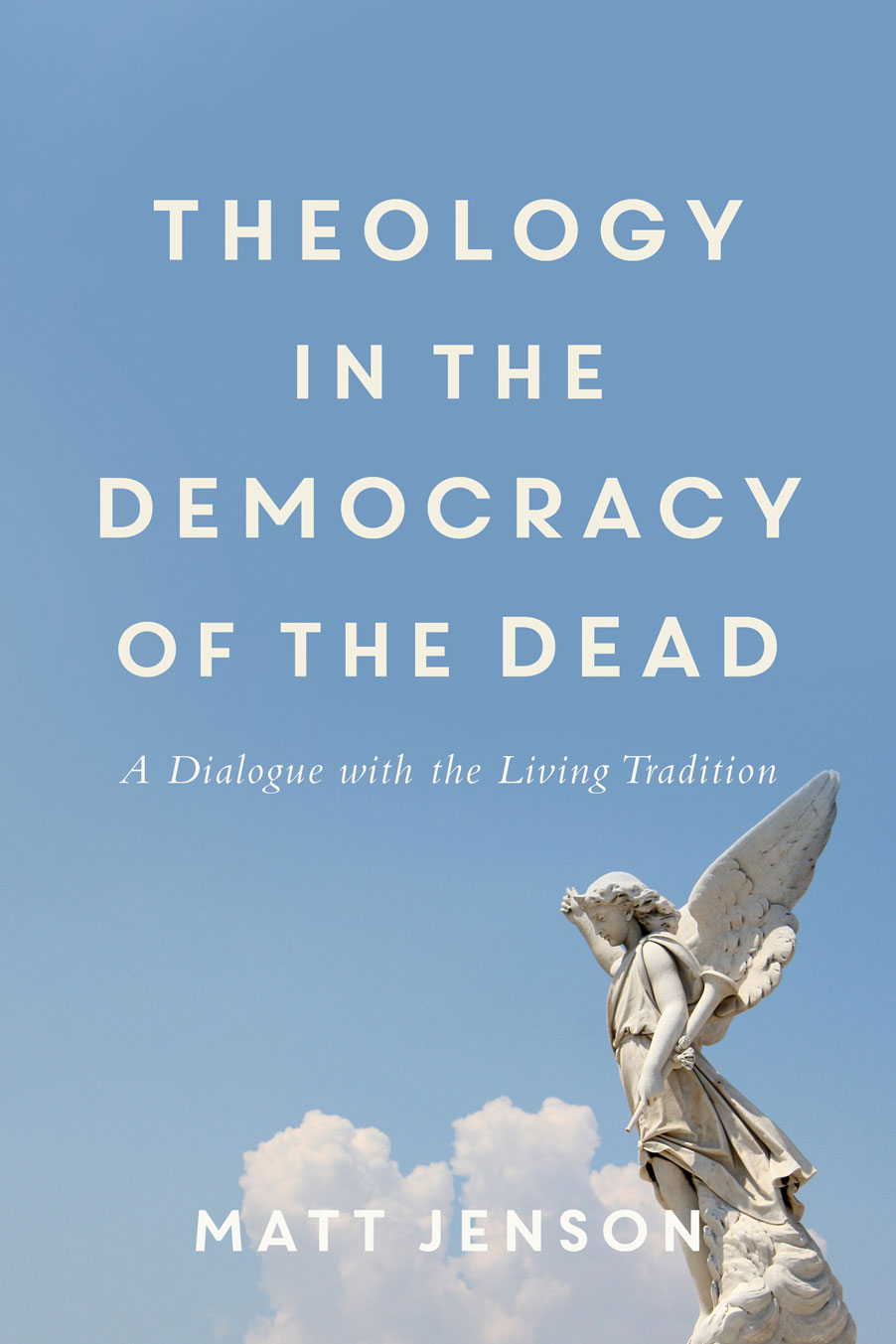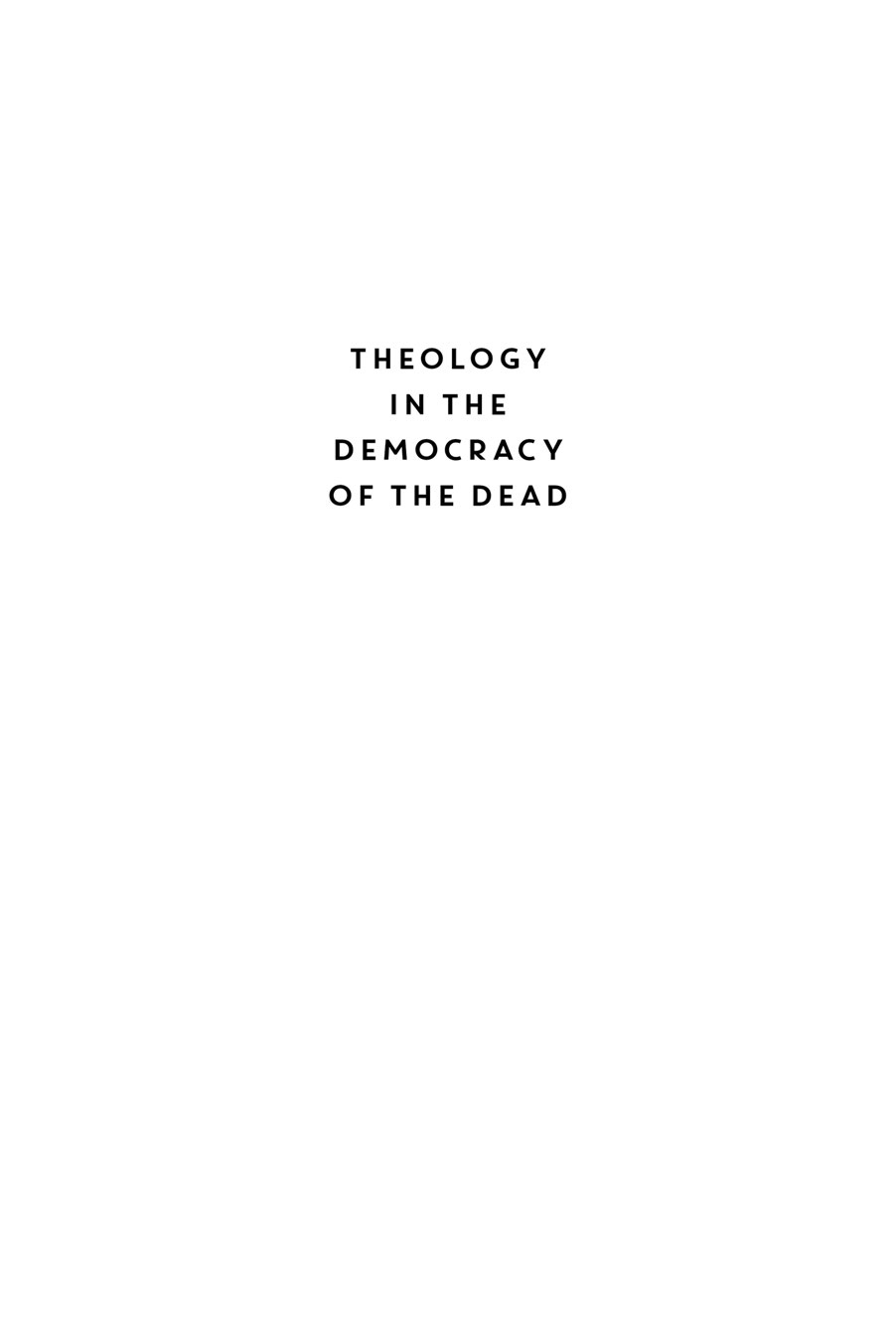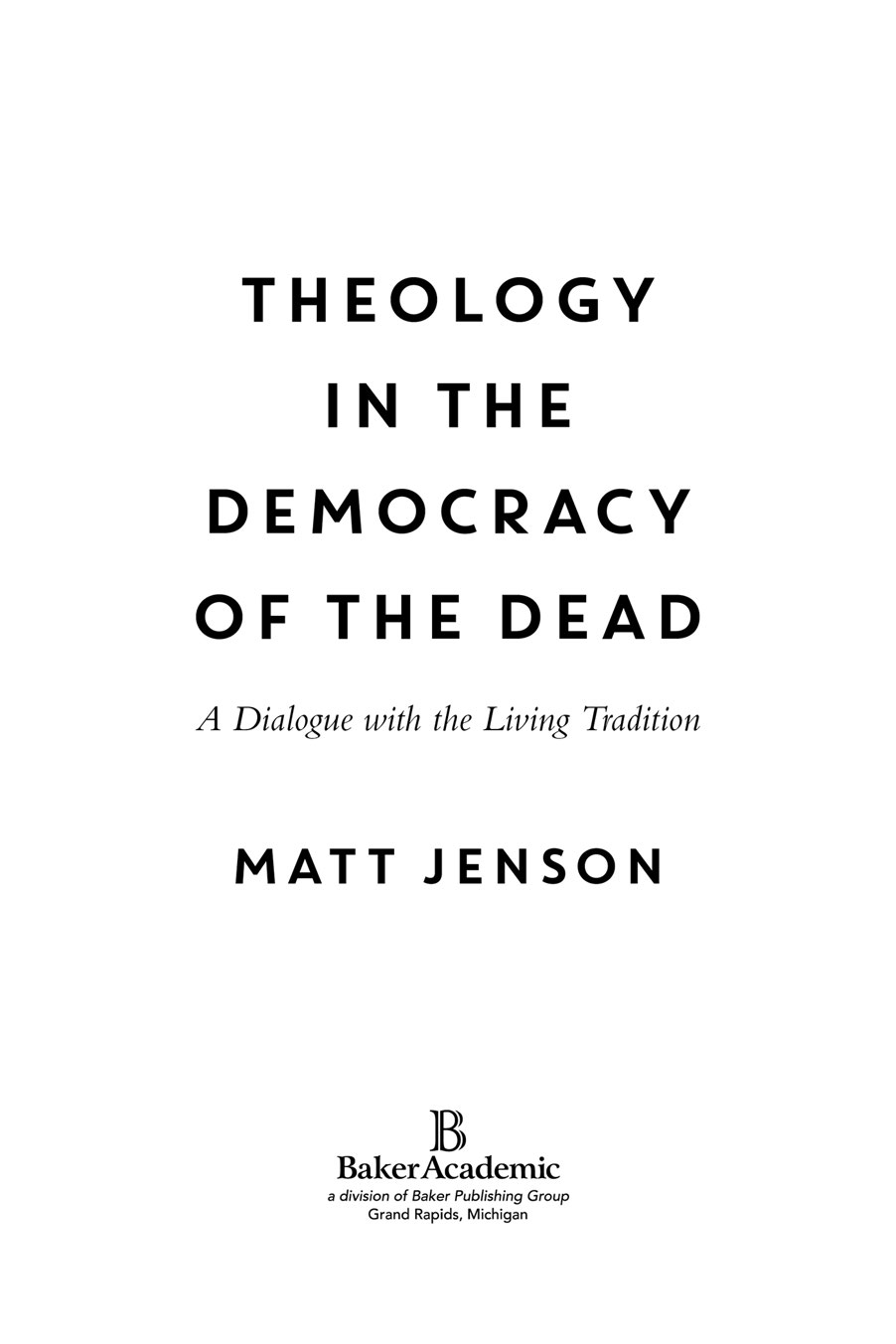1. A King or a Fox? Irenaeus of Lyons and the Theology of Scripture 5
2. The Word Who Became Flesh: The Center and Circumference of Athanasiuss Theology 33
3. The Lovely Things Kept Me Far from You: The Wayward Loves of Augustine 63
4. That Most Biblical of Theologians: Denys the Areopagite and the Brilliant Darkness of God 85
5. Faith Seeking Understandingor Understanding Seeking Faith? Anselm of Canterbury and the Logic of God 107
6. St. Thomas of the Creator: Aquinas and the Beginning and End of All Things in God 129
7. One Little Word Shall Fell Him: The Word of God and the Faith of Martin Luther 165
8. What Do You Have That You Did Not Receive?: John Calvin on Having God as Father 193
9. The Beauty of Holiness: Jonathan Edwardss Religion of the Heart 221
10. A Pietist of a Higher Order: Schleiermacher, Jesus, and the Heart of Religion 247
11. The Happiest Theologian of Our Age: Karl Barth on the One Word of God That We Have to Hear 275
Acknowledgments
This book has been hard work and a long time in coming. With each chapter, I have known the joyful disorientation of diving down the rabbit hole of one of the churchs great minds. Frequently, I wondered if I would be able to make sense of them, much less help others do the same. Fred Sanders and Doug Sweeney came along just at the right time at a couple of points in the project, believing in me and nudging me ahead. Bob Hosack and I began meeting together years ago; he has been a patient, gracious, and clear editor. He handed off the project to Julie Zahm, who has capably and kindly overseen the process of bringing the manuscript to book form. Thanks to her, to Paula Gibson, Brandy Scritchfield, Jeremy Wells, and my anonymous, eagle-eyed copyeditor.
My research assistantsHannah Grady, Miranda Hess, and Sophia Johnsonhave been massively helpful. Hannah and Miranda closely read the book and offered many suggestions of felicitous phrasing, cuts, queries about matters of interpretation, and the perspective of that elusive target audience. Sophia helped with the bibliography and indexes. Biola University has provided much-needed space to research and write through financial support, including a sabbatical in the spring of 2014 and a course release in the fall of 2017.
I am deeply grateful for the time each of these people took to read and respond to portions of the book and am happy to now call many of them friends: Khaled Anatolios, Uche Anizor, John Behr, Sarah Brown, Julie Canlis, John Cavadini, Oliver Crisp, Christine Helmer, Joe Mangina, Dave Nelson, Paul Rorem, Fred Sanders, Kate Sonderegger, Chelle Stearns, Doug Sweeney, Terry Tice, Diane Vincent, Joseph Wawrykow, David Wilhite, Thomas Williams, and Sarah Hinlicky Wilson. They pushed me, kept me honest, blew wind into my sails, wondered with me, confirmed my intuitions, and corrected me. Not only would this book be much weaker without their good help, but there are places where I would have been a questionable guide. There may still be some of those, and the old saw gets it rightthe mistakes are all mine.
I could fill a book telling you of the friendships that have sustained, enriched, illuminated, and directed me over these years. To name only a few: the people of Fountain of Life Covenant Churchmy family in the deepest sense; the Spears, Mikasa, and Sato families; my wonderful parents, Ron and Mary; my sister Molly, who becomes a closer friend each year; and now Sarah.
The Torrey Honors Institute at Biola University has been my academic home for a dozen years now. I know of nothing quite like it. My job is to discuss the greatest books of the West for hours on end with students eager to grow in the likeness of Christ. I have the best students and the brightest colleaguescolleagues who are dear friends. Most of these chapters began as lectures in Torrey, and I gladly dedicate this book to its students, faculty, and staff.
Abbreviations
| AH | Against Heresies. By Irenaeus of Lyons. Edited by Alexander Roberts, James Donaldson, and A. Cleveland Coxe. N.p.: Ex Fontibus, 2010. |
| CD | Church Dogmatics. By Karl Barth. Edited and translated by G. W. Bromiley and T. F. Torrance. 13 vols. Edinburgh: T&T Clark, 195675. |
| CH | Celestial Hierarchy. By Pseudo-Dionysius. In Pseudo-Dionysius: The Complete Works. Translated by Colm Luibheid and Paul Rorem. New York: Paulist Press, 1987. |

